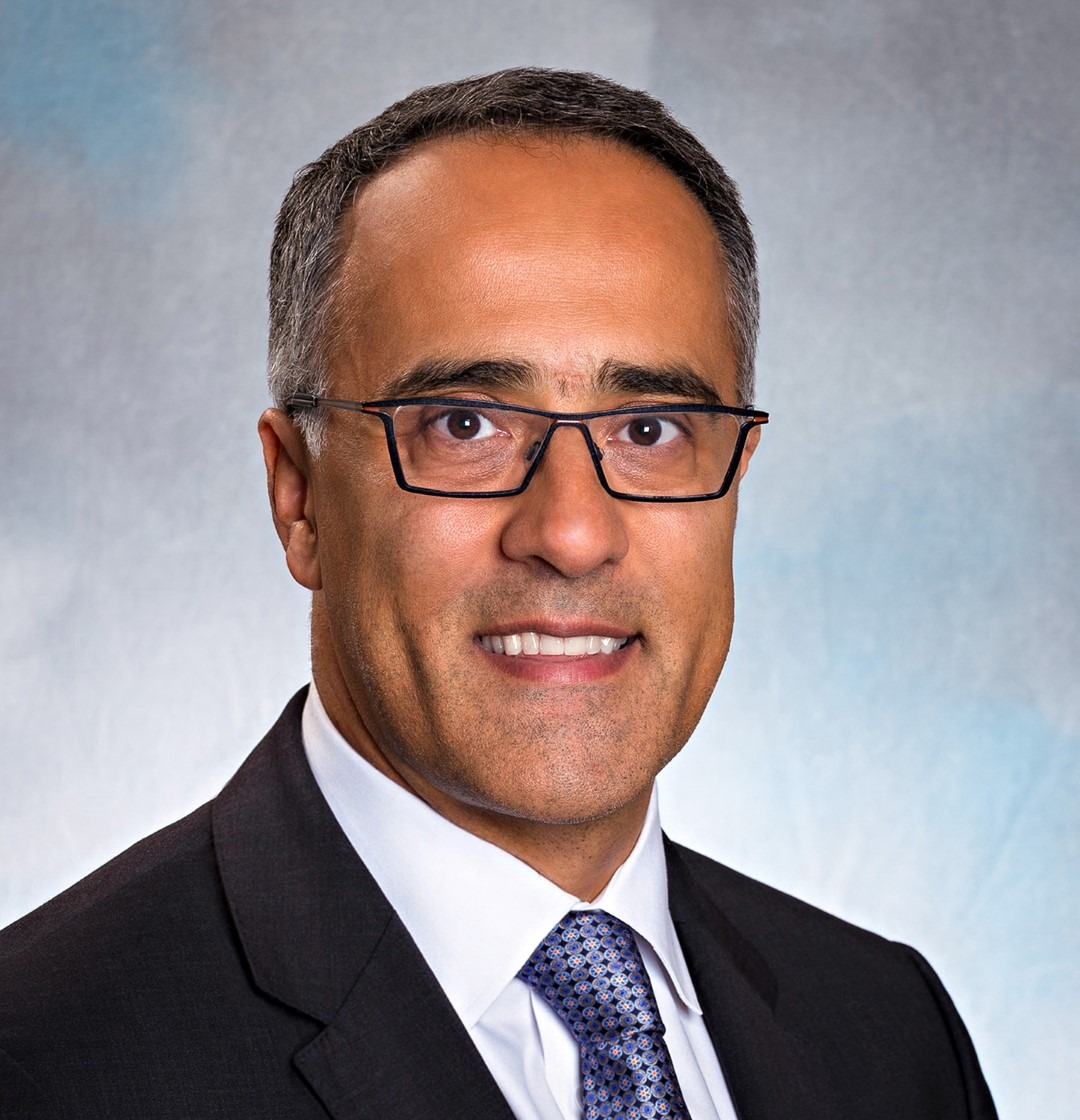مليون مصاب بداء السكري في الإمارات يستفيدون من علاج “حبة تُغني عن الجراحة” كبديل لجراحة إنقاص الوزن

يتيح نوع جديد من العلاج غير التدخّلي – يُطلق عليه “الحبة التي تُغني عن الجراحة” – الارتقاء بنوعية حياة العديد من مرضى النوع الثاني من السكري بالإمارات والمنطقة ككل. وتشير أحدث الإحصاءات في الإمارات إلى إصابة نسبة 34.5% بالسِمنة في عام 2016 ويُقدّر عدد المصابين بالنوع الثاني من السكري في عام 2017 بحوالي مليون شخص (17.3% من السكان ممن تتراوح أعمارهم ما بين سن 20 و79 عامًا).
على الرغم من الفوائد الواضحة لجراحة إنقاص الوزن التي تعود على مرضى السكري وفوائدها في الحد من مخاطر الإصابة بالسرطان وزيادة متوسط العمر المتوقّع للمريض، إلا أن عدد المرضى الذين يُقبلون على إجراء هذه الجراحة من بين المرضى المؤهّلين لا يزال منخفضًا حيث يبلغ 1 إلى 2% منهم فقط. ولا يستوفي عدد كبير من مرضى السكري المعايير الجراحية الحالية، وبالتالي يواصلون معاناتهم مع المرض، لكن الباحثين يعكفون حاليًا على تطوير حبة يمكن أن يصفها الطبيب كبديل للخيار الجراحي.
وفي هذا الإطار، طوَّر فريق من الباحثين في مستشفى بريجهام آند ويمنز هوسبيتال بمدينة بوسطن في ولاية ماساتشوستس بالولايات المتحدة مُركَّبًا جديدًا باسم “لوسي” (ويعني غلاف تجويف الأمعاء) ينتج عنه مسحوق لزج يغلّف الأمعاء ويمثّل حاجزًا على الجزء الأول من الأمعاء تشبه نتائجه جراحة المجازة المَعِدِيّة. يمكن لمُركَّب “لوسي” تغليف الأنسجة السليمة بما يشكِّل حاجزًا ماديًا مؤقّتًا على تجويف الأمعاء أو داخله أو على سطحه، بحيث لا يتم امتصاص العناصر الغذائية، بما في ذلك السكر.
ومن المقرر مناقشة هذا البحث في مؤتمر الجراحة الذي يُعقد في إطار معرض ومؤتمر آراب هيلث الذي يُقام في الفترة من 28 إلى 31 يناير 2019 في مركز دبي التجاري العالمي. وتحتضن الدورة 44 من معرض ومؤتمر آراب هيلث من تنظيم إنفورما لايف ساينسز إكزيبيشنز أكثر من 4,150 شركة عارضة من 66 دولة ومن المتوقّع أن يستقبل الحدث أكثر من 84,500 زائر من مختلف أنحاء العالم.
وفي تعليقٍ له قُبيل مؤتمر الجراحة، قال الدكتور علي تافاكولي، رئيس قسم الجراحة العامة وجراحة الجهاز الهضمي، الحاصل على الزمالة في مجال العلاج بالحد الأدنى من التدخُّل الجراحي وجراحة السِمنة، والمدير المشارك بمركز جراحات إدارة الوزن والجراحات الأيضية في مستشفى بريجهام آند ويمنز هوسبيتال بمدينة بوسطن في ولاية ماساتشوستس بالولايات المتحدة، والأستاذ المساعد للجراحة في كلية الطب بجامعة هارفارد “في ظل تفشّي مرض السكري في الشرق الأوسط بشكل متزايد، ظهرت حاجة مُلحّة لأساليب علاج آمنة وغير تدخّلية تحقّق نجاحًا مماثلاً لجراحة السِمنة في إنقاص الوزن ومكافحة مرض السكري، لكن من دون المخاطر المصاحبة.
وأضاف: “من خلال الهندسة الحيوية، نجح الفريق بمستشفى بريجهام آند ويمنز هوسبيتال في تحقيق نتائج مشابهة لما شهده مرضى السكري الذين خضعوا لجراحة المجازة المَعِدِيّة في الحد من مرض السكري، حيث طوّر أسلوبًا جديدًا يمكن أن يحقق هذه النتائج المفيدة لمجموعة أكبر بكثير من المرضى”.
من جهته قال الدكتور حسام الطرابلسي، اختصاصي جراحة السِمنة في مستشفى ميدكير بدبي في الإمارات: “لا شك في أن أول من يجب أن يخضع للعلاج بالجراحة اليوم هم مرضى السكري من النوع الثاني الذين يتخطّى مؤشّر كتلة جسمهم 35، فقد عادت تركيزات الجلوكوز والإنسولين وHbA1c في البلازما إلى المعدّل الطبيعي في 80 إلى 100% من مرضى السِمنة المفرطة الذين خضعوا إلى الجراحة. بصفة عامة، ثلاثة من بين كل خمسة مرضى يشهدون تحسّنًا ملحوظًا في خفض مستويات الإنسولين خلال أسبوع واحد من الجراحة.
وأضاف، “لكن يمكن أن تساعد الأساليب غير التدخّلية على الوصول إلى وزن الجسم المثالي للمرضى غير المؤهّلين للخضوع للجراحة، مثل الأطفال أو الأشخاص الذين يرهبون الجراحة. ويظل الكثير من المرضى يعانون من داء السكري لخوفهم من جراحات السِمنة ومخاطرها؛ لذلك، يمكن أن يحفّز الحد الأدنى من المخاطر المرتبط بأنواع العلاج غير التدخّلية عددًا كبيرًا من المرضى في الإمارات على التعافي من مرض السكري”.
-انتهى-
الخبر بالانجليزي
UAE’s 1 million diabetics could benefit from “Surgery in a Pill” as an alternative to weight loss surgery
• With only 1-2% of eligible patients undergoing surgery to manage diabetes, experts highlight the need for non-invasive treatments that replicate the metabolic success of weight loss surgery but with less risk
• “Surgery in a Pill” works by delivering medication directly to the intestine
• New treatments for weight loss and diabetes to be discussed at the Surgery Conference at Arab Health taking place from 28 – 31 January 2019 in Dubai
Dubai, United Arab Emirates, 14th January 2019: A new non-invasive treatment dubbed “Surgery in a Pill” could help improve the quality of life for many Type 2 diabetic patients in the United Arab Emirates (UAE) and the wider region. The most recent statistics for the UAE show obesity affected 34.5% in 2016 and an estimated 1 million people (17.3% of the population between the ages of 20 and 79) had Type 2 diabetes in 2017 .
Despite the clear benefits of weight loss surgery – improvement in diabetes, reduction in cancer risk, and extended life expectancy – uptake of surgery amongst patients who qualify remains low with only 1-2% of eligible patients undergoing surgery. Many diabetic patients do not fulfill the current surgical criteria and therefore continue to struggle with their diabetes, however, researchers are currently developing a pill that can be prescribed as an alternative option to surgery.
Developed by a research team from the Brigham and Women’s Hospital (BWH) in Boston, Massachusetts, US, the new compound named LuCI (for Luminal Coating of the Intestine) delivers a sticky, gut-coating paste that provides a barrier on the first part of the intestine mimicking the effect of gastric bypass. LuCI is able to coat healthy tissue and form a transient physical barrier on the luminal, or inside surface of the intestine, so that nutrients, including sugar, are not absorbed.
The research will be discussed at the Surgery Conference at Arab Health taking place from 28 – 31 January 2019 at the at the Dubai World Trade Centre. Organised by Informa Life Sciences Exhibitions, the 44th Arab Health Exhibition & Congress will welcome more than 4,150 exhibiting companies from 66 countries and an anticipated 84,500+ attendees from across the globe.
Speaking ahead of the Surgery Conference, Dr Ali Tavakkoli, Chief, Division of General and GI Surgery Director, Minimally Invasive and Bariatric Surgical fellowship, Co-Director of the Center for Weight Management and Metabolic Surgery, Brigham and Women’s Hospital, Boston, Massachusetts, US, and Associate Professor of Surgery, Harvard Medical School, said: “Given the growing diabetes epidemic in the Middle East, there is an urgent need for safe, non-invasive treatments that replicate the weight loss and anti-diabetic success of bariatric surgery but with less risk.
“Through bioengineering, the team at BWH has replicated the antidiabetic effects seen in patients who undergo gastric bypass surgery, developing a novel approach that can potentially extend this benefit to a much wider patient population,” he added.
According to Dr Hussam Al Trabulsi, Specialist Bariatric Surgeon, Medcare Hospital, Dubai, UAE: “Type 2 diabetics with a BMI of over 35 are the first condition to be treated by surgery today and normalisation of concentrations of plasma glucose, insulin, and HbA1c was seen in 80–100% of morbidly obese patients that were treated by surgery. In general, three out of five patients show marked improvement in terms of reduced insulin levels one week after surgery.
“However, for those patients who do not qualify for surgery, such as children, or for those who are afraid of undergoing surgery, more non-invasive methods could help them get to their ideal body weights. Many patients remain diabetic for the sole reason that they are afraid of bariatric surgeries and their risks. The minimal risks associated with these non-invasive procedures could motivate a large number of patients in the UAE to get rid of their diabetes,” he added.





